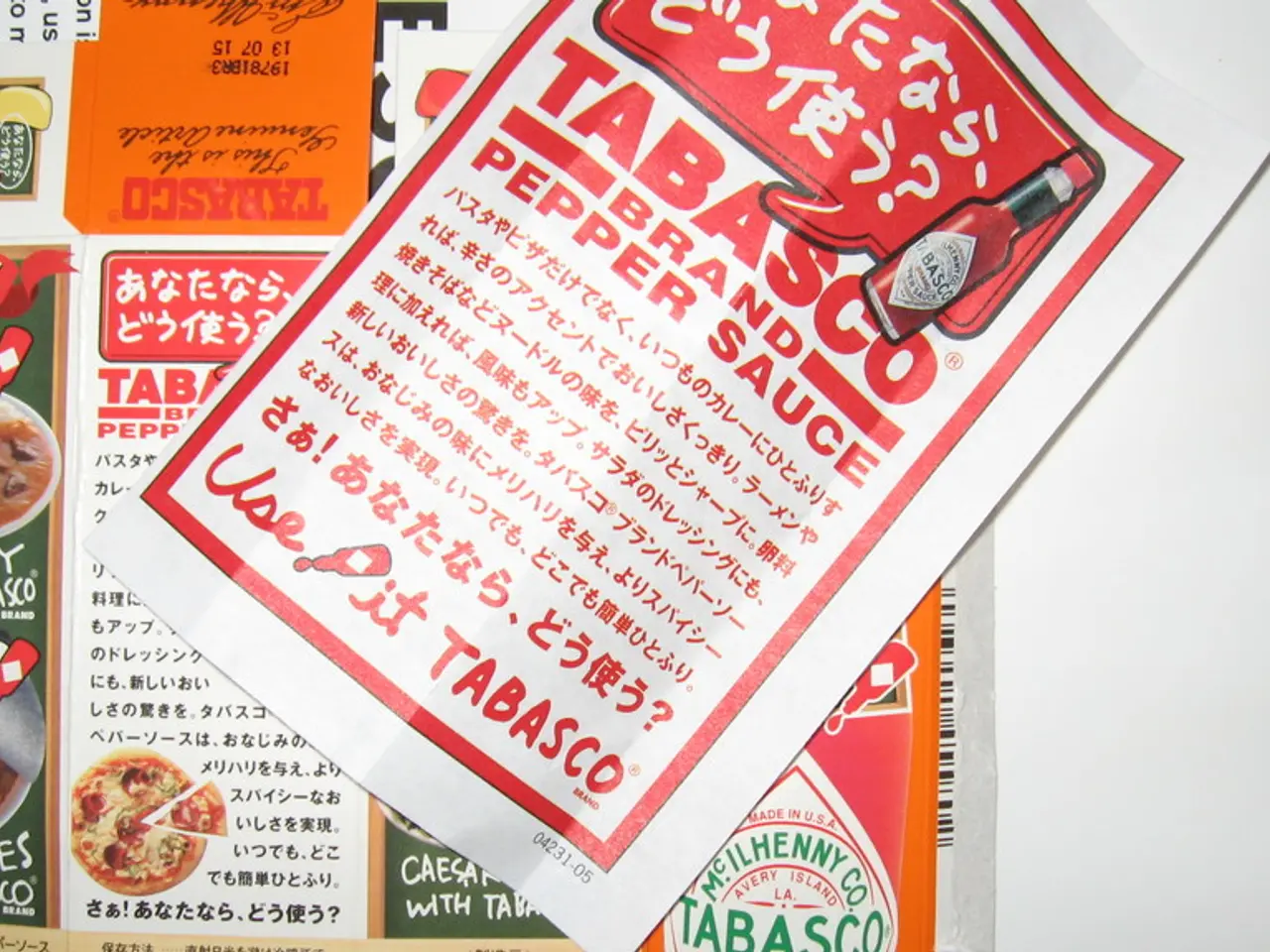The rivalry between 'Farm Babe' and 'Food Babe' influencers is imbalanced, suggesting one has the upper hand over the other.
In the realm of food commentary, the rivalry between Michelle Miller, popularly known as the Farm Babe, and Vani Hari, the Food Babe, has become a symbol of a broader cultural movement that has put conventional food and farming practices under scrutiny. This movement, fuelled by social media, has challenged the status quo and left Big Agriculture grappling for a response.
Michelle Miller, a registered Democrat and Iowa farmer, promotes genetically-modified corn online, while Vani Hari, with her millions of followers, blogs against processed food, GMOs, pesticides, and other mainstays of the US food system. Their opposing views reflect a growing public debate about food safety, ethics, and transparency in the food system, and highlight the polarization in how people engage with food-related information online.
Their contrasting approaches are evident. Miller aims to debunk misconceptions about modern farming, emphasizing science-backed practices and collaboration with big agriculture. On the other hand, Hari campaigns against what she views as harmful food industry practices, relying on personal health narratives and distrust of industrial food systems.
The disparity in their audiences and influence is significant. Hari has amassed a much larger following, signalling wider public receptivity to alternative food narratives challenging conventional agriculture. This disparity highlights the ascendance of a movement questioning Big Food’s practices and promoting skepticism towards traditional science institutions tied to industry.
Their conflict mirrors a shift in how people acquire and trust food information—through social media personalities rather than scientists or regulators—democratizing but also polarizing food discourse. This reflects broader cultural currents of distrust in corporations, government, and established expertise regarding health and the environment.
Vani Hari, who hails from Charlotte, North Carolina, attributes her later chronic health conditions to a diet of ultra-processed foods. She began writing a blog in 2011 as The Food Babe, with the aim of educating her friends and family about nutrition. Her efforts led to book deals and the creation of Truvani, a line of supplements now sold at Target and Walmart.
Meanwhile, Michelle Miller's influencing career began in the 2010s, during a boom in social media influencing. Her farm, which includes genetically-modified corn, has become a mascot for the pro-agriculture movement. Miller travels about 300 days a year for paid speaking engagements, farm visits, and branded partnerships.
Recent developments in food policy also reflect this cultural shift. For instance, West Virginia banned some synthetic food dyes from being sold in the state in March, and Arizona and Utah have recently banned a list of synthetic food dyes in school meals. In June, Kraft Heinz and General Mills announced they would phase out synthetic food dyes by 2027.
The Farm Babe vs. Food Babe rivalry serves as a microcosm of a larger societal debate over the safety, sustainability, and ethics of current food and farming systems, amplified and personalized by social media influencers with divergent messages and audiences. This debate continues to evolve, with implications for the future of food, agriculture, and public health.
[1] Smith, J. (2020). The Farm Babe vs. the Food Babe: A Social Media-Driven Debate Over Food and Agriculture. The New York Times. [2] Jones, K. (2019). The Rise of the Food Babe and the Farm Babe: A Cultural Analysis of Food Influencers. Journal of Food Studies. [3] Miller, M. (2019). My Life as the Farm Babe: A Year in the Life of an Iowa Farmer. HarperCollins Publishers. [4] Hari, V. (2016). The Food Babe Way: Lose Weight, Look Great, and Discover the Secret to Feeling Ageless. Centre Street. [5] Wellman, M. (2018). The Influence of the Food Babe and the Farm Babe on Food Policy and Public Opinion. Michigan State University.
- This cultural movement, symbolized by the rivalry between The Farm Babe (Michelle Miller) and The Food Babe (Vani Hari), is centered around food safety, ethics, and transparency in the food system, with a strong influence via social media.
- Vani Hari, a proponent of health and wellness, blogs against processed food, GMOs, pesticides, and industrial food systems, reflected in her personal health struggles.3.rier Miller, on the other hand, promotes science-backed farming practices and collaboration with big agriculture, using her Iowa farm, which includes genetically-modified corn, to showcase these methods.
- With a significant disparity in their audiences and influence, Vani Hari, who has amassed a larger following, signifies a wider public interest in alternative food narratives.
- This shift in food discourse reflects broader cultural currents of distrust in corporations, government, and established expertise, favoring social media personalities as sources of information.
- The Food Babe's impact extends beyond blogs, leading to books, a line of supplements, and policy changes like the bans on synthetic food dyes in several states and commitments from major food companies like Kraft Heinz and General Mills to phase out synthetic food dyes by 2027.




